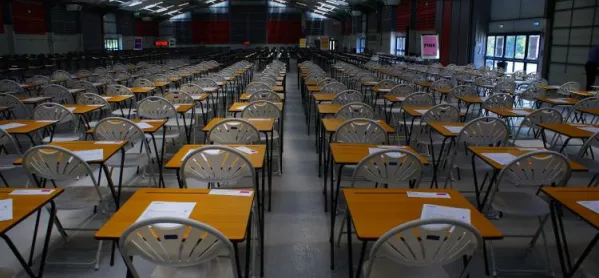Exclusive Tes analysis has shown significantly fewer people young people entitled to free school meals (FSM) achieve a grade C or 4 in their GCSE maths and English between 16 and 19 than among the general population - and there are massive disparities across different parts of the country.
The data from the Department of Education (DfE) shows that in the most extreme case - Wealdon in East Sussex - 1.8 per cent of those with free school meal entitlement who did not achieve a C grade in both subjects at 16 went on to achieve this by the age of 19, a fifteenth of the rate for their better-off peers (27.7 per cent). Other districts with low success rates among the most disadvantaged young people included Wyre Forest, Maldon and Ashford. In these areas, fewer than 4 per cent of young people without a C in English and maths at the age of 16 went on to achieve this by 19 (see table, left).
At the other end of the spectrum, in Blaby, Leicester, the attainment rate among FSM-entitled students was almost 44 per cent.
Forcing resits can be detrimental
At present, all students who fail to obtain a C or 4 are required to work towards achieving this. Those who obtained a grade D or 3 are effectively forced to retake the qualification, because of the funding rule for colleges.
College leaders have argued that forcing young people to resit GCSEs can be detrimental and that more applied qualifications, such as functional skills, would be a better alternative.
Disproportionate effect
Across the old and new versions of GCSEs, there were more than 327,000 English and maths entries among 17-plus students this summer. In the final sitting of the legacy qualification, the A*-C pass rates were 24.4 per cent and 29 per cent in maths and English, respectively.
NUS students’ union president Shakira Martin said the new statistics showed that the GCSE resit policy “disproportionately affects people from disadvantaged backgrounds” and is “seriously detrimental to social mobility”.
The emphasis “should be on ensuring students are able to study maths and English in the way that is most appropriate to them,” she adds.
This is an edited version of an article in the 3 November edition of Tes. Subscribers can read the full story here. To subscribe, click here. To download the digital edition, Android users can click here and iOS users can click here. Tes magazine is available at all good newsagents.
Want to keep up with the latest education news and opinion? Follow Tes FE News on Twitter, like us on Facebook and follow us on LinkedIn




